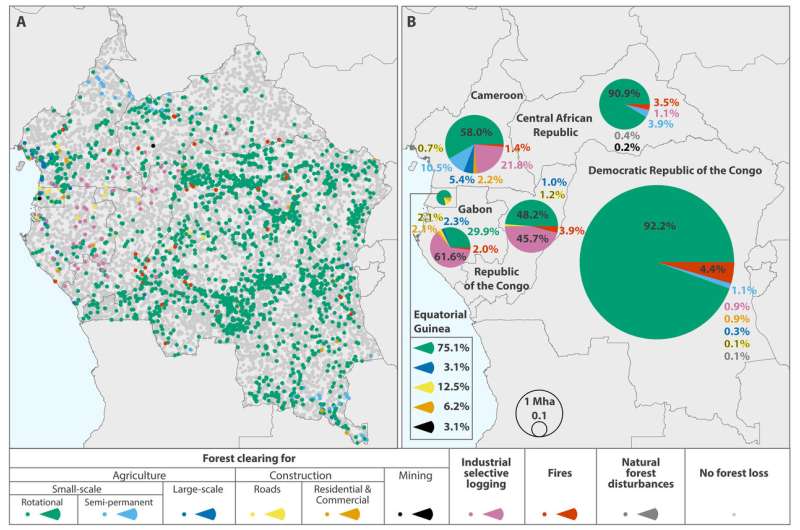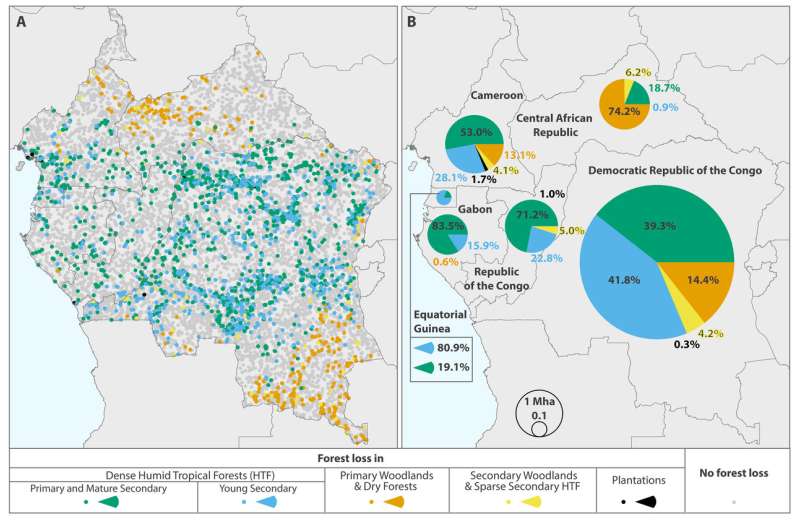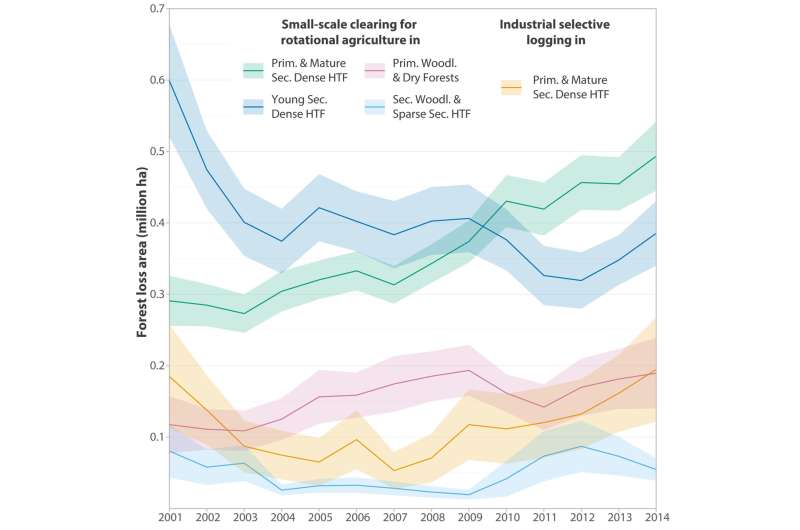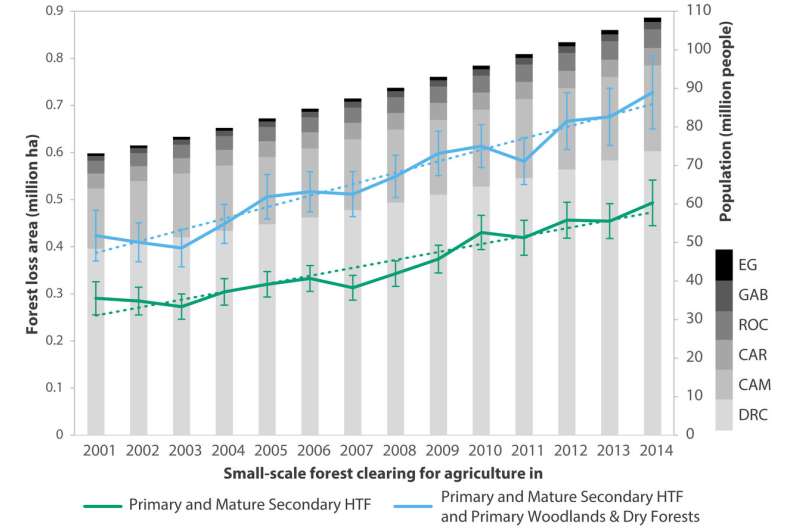November 8, 2018 report
Smallholder clearing found to be dominant reason for forest loss in the Congo Basin

A team of researchers from the University of Maryland and the State University of New York has found that smallholder clearing is the dominant driver of forest loss in the Congo Basin. In their paper published in the journal Science Advances, the group describes the techniques they used to assess forest loss in the area over the period from 2000 to 2014 and what they found.
The Congo Basin includes forests in the Democratic Republic of Congo, the Republic of Congo, Gabon and Equatorial Guinea—it comprises the second largest rainforest in the world (the Amazon basin is the largest). And like the Amazon basin, it is being cut down. In this new effort, the researchers sought to learn more about the entities that are cutting down the forest as a means toward targeting efforts to reduce or eliminate such cutting.
To better understand what is happening in the basin, the researchers studied satellite data over the years 2000 to 2014, noting changes in tree cover. They also used remote sensing technology to analyze forest changes and deforestation drivers. They then compared what they learned with information provided by outside experts on the area.

The researchers found that the Amazon Basin lost forest area approximately the size of Bangladesh over the span of just 15 years. They also found that logging was not the biggest culprit—it was small-time clearing done by hand by subsistence farmers. In all, 80 percent of forest loss was due to what the researchers describe as smallholder clearing. The researchers suggest the reason for such massive smallholder clearing is poverty. Unable to make a living, many people turn to farming. They cut down a swath of forest and plant crops. But the soil is quickly depleted, forcing the farmers to cut down new areas periodically.

The researchers also noted that the United Nations has estimated that the human population in the Congo Basin will be five times higher than it is today by the end of the century. They suggest that if conditions in the area do not improve, the entire basin could lose all its native forests over the same time period.

More information: Alexandra Tyukavina et al. Congo Basin forest loss dominated by increasing smallholder clearing, Science Advances (2018). DOI: 10.1126/sciadv.aat2993
Journal information: Science Advances
© 2018 Science X Network




















